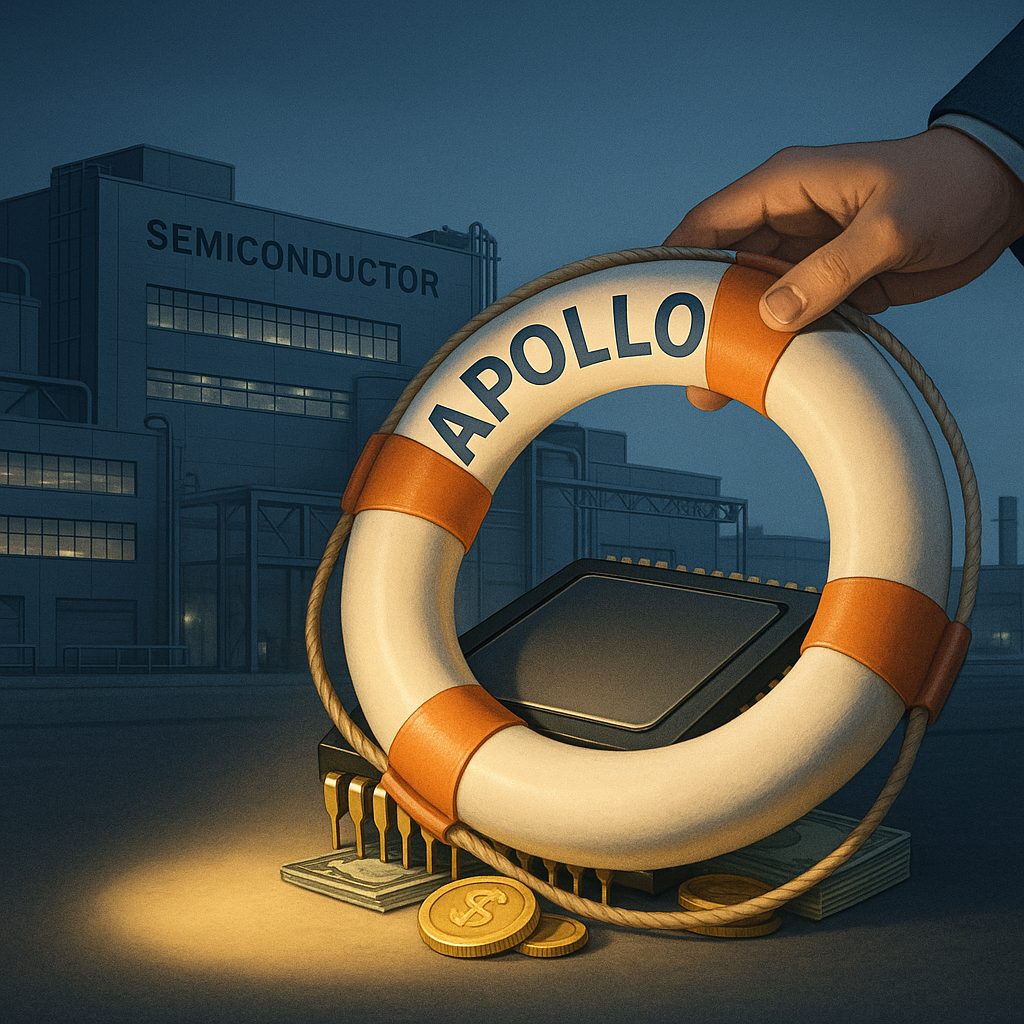Monday's going to be a big day for Intel. The once-mighty chip titan—now looking more like a winded boxer in the late rounds—is finally getting that financial oxygen mask it's been gasping for. Apollo Global Management is plunking down $15 billion for a minority stake in Intel's manufacturing operation, with the deal expected to close after the weekend.
Let's be real about what this means. This isn't just an investment; it's a financial rescue mission.
Intel has been watching its market position erode faster than a sandcastle at high tide. AMD keeps stealing their lunch money in the CPU market, while NVIDIA has left them in the dust on the AI highway. Meanwhile, CEO Pat Gelsinger has been trying to execute this ambitious manufacturing renaissance that costs more money than a small country's GDP.
(I've covered semiconductor capital expenditures since 2018, and the numbers have become almost comically large.)
The Apollo deal represents what I'd call a marriage of convenience. Intel desperately needs the cash, and Apollo... well, they must see something worth salvaging in that sinking ship. Maybe they're getting terms so sweet that even modest success makes the math work. Intel's being tight-lipped about exactly how this deal values their manufacturing business, which tells you something right there.
The company's problems run deep. Really deep. We're talking about years of manufacturing missteps that let competitors zip past them technologically. Remember when Intel defined cutting-edge silicon? Those days feel like ancient history now.
This cash infusion creates an interesting dynamic with Washington, too. Intel's already lined up for billions in CHIPS Act funding, and now they've got private equity in the mix. It's like watching a corporate version of The Avengers assemble—if The Avengers were all just different types of money.
But here's the thing—and I can't stress this enough—Intel needed this deal because they're bleeding cash like a hemophiliac in a knife fight. Last quarter brought a $1.6 billion loss. Thousands of employees shown the door. The stock? Down about 30% this year alone.
Gelsinger's foundry strategy (opening Intel's manufacturing to other companies' chip designs) is the corporate equivalent of remodeling your house while it's on fire. It might work eventually, but boy, it's expensive and risky in the meantime.
I spoke with three semiconductor analysts last week who all used the same word to describe Intel's situation: "precarious."
Can Intel pull off this comeback? Tech history is full of resurrection stories. IBM reinvented itself. Apple came back from the brink. Microsoft found its second wind. But—and this is a massive but—semiconductor manufacturing requires such eye-watering capital investment and such technical precision that the margin for error is thinner than the transistors they're trying to build.
Monday's news might give Intel's stock price a temporary sugar rush. The real question is whether Gelsinger and company can use this financial breathing room to actually fix what's broken.
Look, I've watched too many tech giants stumble to count Intel out completely. But this Apollo deal isn't a victory—it's a lifeline thrown to a swimmer fighting against a powerful current. Whether Intel reaches shore or gets swept out to sea depends entirely on what they do next.
